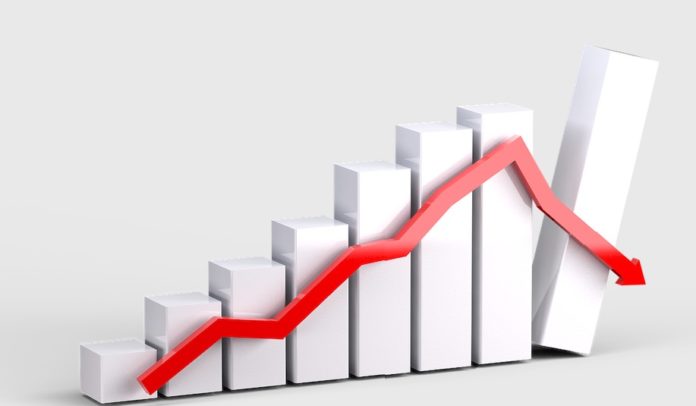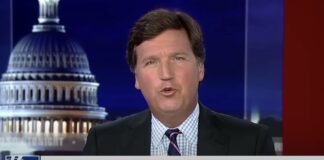OPINION | This article contains commentary that reflects the author's opinion.
The White House is desperately attempting to spin a narrative as the United States enters a recession under the failed leadership of Joe Biden and the Democrats.
The U.S. economy shrinks for a second straight quarter by an annualized rate of 0.9%. Most economists define a recession as two consecutive quarters of negative growth.
White House economic advisor Brian Deese is pushing back against the widely accepted definition of recession. He claims that a recession is not universally defined as two straight quarters of negative growth because some economists offer alternative definitions.
In an attempt to help the Biden White House, Deese says, “It’s not the definition that economists have traditionally relied on.”
However, this contradicts Deese’ own words in 2008 when he told the media that economists have a technical definition of recession, which is two consecutive quarters of negative growth.”
The U.S. Bureau of Economic Analysis’ (BEA) estimated the nation’s gross domestic product was worse than the predicted expansion of 0.5%.
A statement from the BEA reads: “The decrease in real GDP reflected decreases in private inventory investment, residential fixed investment, federal government spending, state and local government spending, and nonresidential fixed investment that were partly offset by increases in exports and personal consumption expenditures (PCE).”
“Imports, which are a subtraction in the calculation of GDP, increased.”
Treasury Secretary Janet Yellen also attempted to claim the U.S. economy is simply in a “period of transition” under the Biden administration as “[economic] growth is slowing.”
This comment has sparked significant backlash from Americans on social media who say the Biden administration is desperately attempting to spin a narrative.
Speaking to NBC host Chuck Todd, Yellen said “This is not an economy that’s in recession. But we’re in a period of transition in which growth is slowing and that’s necessary and appropriate and we need to be growing at a steady and sustainable pace.”
“So there is a slowdown and businesses can see that and that’s appropriate, given that people now have jobs and we have a strong labor market,” she continued.
Despite Yellen’s remarks, U.S. economic output appears to be turning negative for a sustained period of time.
The Bureau of Economic Analysis estimated the second quarter Gross Domestic Product (GDP) could show the economy shrank at a 1.6% annualized pace from April to June.
More on this story via Daily Wire:
Yellen also pointed to low joblessness as an indicator of strong economic performance. Although unemployment remains at 3.6% — a significant improvement from the 14.7% level seen in April 2020 — labor force participation has not recovered from pre-recession levels, contributing to worker shortages that increase expenses for businesses and prices for consumers.
Arguing that “you don’t see any of the signs” of a broad-based economic contraction, Yellen referred to “solid” consumer spending figures. Although a report from the Department of Commerce shows that national retail sales grew by 1% last month, the Consumer Price Index (CPI) rose 1.3% over the same period — implying that higher price levels played a significant role in the higher spending rather than true gains in economic activity.
Indeed, the White House — which repeatedly insisted in recent weeks that the nation is “stronger economically than we have been in history” — has been laying out its economic case ahead of the Bureau of Economic Analysis growth report.
“While some maintain that two consecutive quarters of falling real GDP constitute a recession, that is neither the official definition nor the way economists evaluate the state of the business cycle,” the White House said in a Thursday blog post. “Instead, both official determinations of recessions and economists’ assessment of economic activity are based on a holistic look at the data — including the labor market, consumer and business spending, industrial production, and incomes. Based on these data, it is unlikely that the decline in GDP in the first quarter of this year — even if followed by another GDP decline in the second quarter — indicates a recession.”
As President Joe Biden’s approval rating continues to plummet, news of a recession would serve to worsen Democrats’ chances in the upcoming midterm elections. CNBC’s All-America Economic Survey, for example, recently showed a meager 30% of Americans approving of Biden’s economic performance, and Republicans are positioned to gain up to 70 seats in the House of Representatives.






